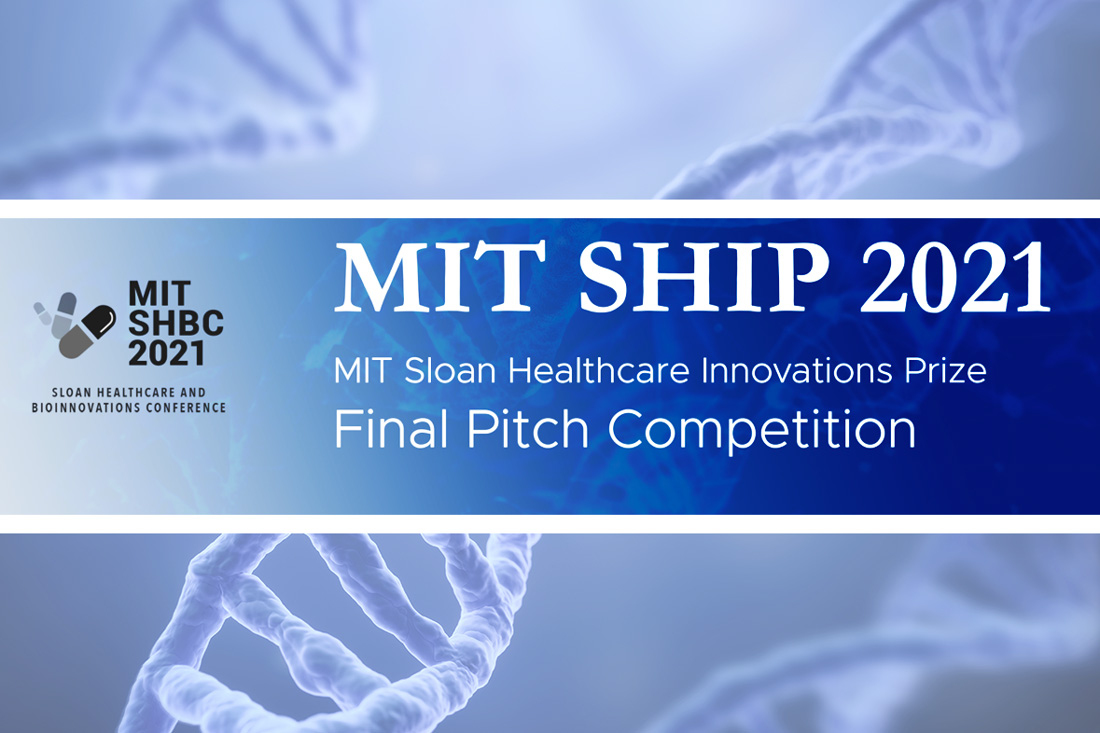MIT team improving gene therapies wins Sloan health care prize
Kano Therapeutics was one of eight finalists to pitch at the virtual competition. MIT team improving gene therapies wins Sloan health care prize

The MIT team Kano Therapeutics won the 2021 Sloan Healthcare Innovations Prize Thursday with its novel approach for producing single-stranded DNA (ssDNA). The technology could make gene therapies safer, more personalized, and cheaper.
Most gene therapies utilize double-stranded DNA, which can miss its target in the body and produce unwanted side effects. Single-stranded DNA has the potential to more precisely deliver genetic material to cells, but manufacturing ssDNA is currently expensive and inflexible.
Kano uses a novel approach to make ssDNA production more practical for applications like engineering immune cells to fight disease and altering genomes with CRISPR.
“Sustainable biomanufacturing of long single-stranded DNA can open doors to gene and cell therapies we currently only dream of,” says Kano team member Floris Engelhardt, who is currently a postdoc at MIT. “Not only do we think long ssDNA can improve the safety and efficacy of cell and gene therapies — while unlocking new indications — it may also be able to increase the efficiency and speed of manufacturing, shortening the time it takes to get therapies to patients.”
The team’s technology is based on the research of Engelhardt, whose team also includes John Vroom, a first-year MBA candidate at MIT’s Sloan School of Management.
Kano’s production process uses two versions of a type of DNA molecule called a plasmid to program a replicating virus called a bacteriophage. One plasmid holds the code to get into the bacteriophage, and the other carries the desired genetic code to be harvested.
“Cell and gene therapy currently is a little like assembling furniture before Ikea came along,” Vroom says. “The pieces don’t always fit together, assembly is rarely successful, and it can be incredibly frustrating for the builders. Kano aims to be a little like the Ikea of cell and gene therapy.”
Kano, which earned $20,000 as part of the prize, was one of eight finalists to pitch at the competition. Each team had five minutes to give their presentations, which were judged based on categories including the solution’s impact, novelty, market opportunity, feasibility, and traction. The annual pitch competition is a student-led event at MIT Sloan and is part of the Sloan Healthcare and BioInnovations Conference that was held Feb. 25 and 26.
The $4,000 second-place prize went to Blue Ocean Therapeutics, a company working to identify biomarkers that could help treat a type of epilepsy known as Focal Cortical Dysplasia type II (FCD II). Using advances in gene sequencing and machine learning to identify diseased cells, the company is hoping to improve the precision of current treatments as well as develop treatments of its own.
In third place was Hive Health, a startup using data science to provide a more effective, affordable health insurance option to Filipino employees. Through a partnership with the Filipino government, the company is using health care data to broaden access to coverage in the country while maintaining profitability.
Beyond the prize money, each of the eight finalists received feedback from both the judges and other industry experts who were made available to the teams via “office hours” in the weeks leading up to the final pitch.
“The teams already won regardless of the outcome,” says Zen Chu, a professor in the MIT Sloan School of Management who helped review applications. “This process of pitching and honing their ideas and getting feedback from a broad array of investors and buyers, whether they’re physicians or insurance companies or others, really informs and improves their outcomes.”
Irena King, the founder of Surgicure Technologies, which is developing a device to secure medical tubes in patient’s mouths when they’re intubated, says the competition helped her team to think through business processes and to network, adding that she’s been eager to connect with more female founders and advisors.
“It’s always great to get additional feedback on how we can strengthen our business model,” King says. “Any connections we can make with the industry and investors are super helpful. Also, the additional credibility we get from going through a screening and competition helps a lot.”
Other finalists included Cupid Health, which helps heart-failure patients manage medications while providing clinical insights to providers; Global Newborn Solutions, which is working to improve neonatal health in low-resource settings; Demos, which has developed a new drug-injection technique to broaden access to biological drugs; and Glyphic Biotechnologies, which is decoding the proteins in the human body at single-molecule resolution to improve diagnostics and therapeutics.





































